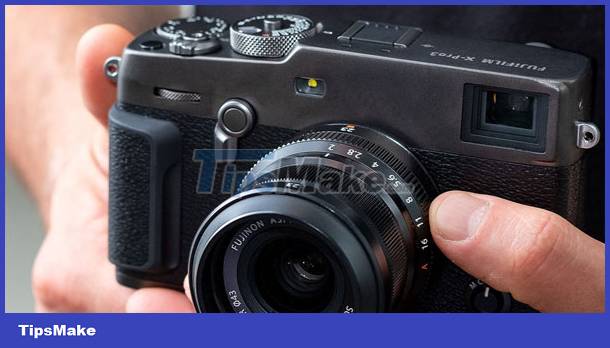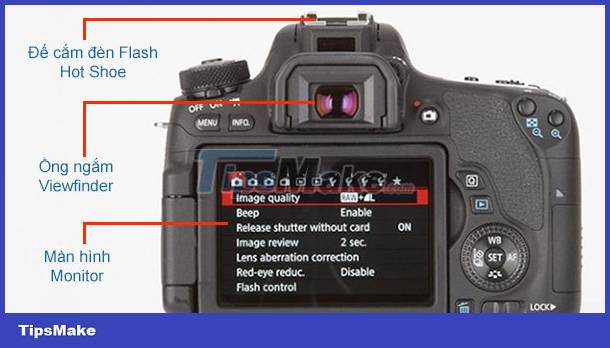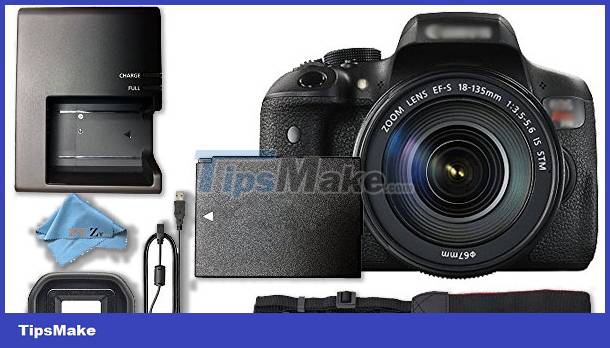How to choose a semi-professional digital camera
Semi-Professional Digital Camera - Semi Professional Digital Camera is for those who are familiar with digital cameras, want to use the modern functions of digital cameras and adjust the parameters by themselves. This model, in addition to the features and parameters like the popular type, also has other advanced parameters.
 How to choose a semi-professional digital camera
How to choose a semi-professional digital camera
Here are the parameters you should pay attention to when choosing a semi-professional digital camera
first
Designs
Semi-professional digital cameras are larger and heavier than entry-level cameras and also look very professional. You can hold it with 1 hand and has a neck strap. The buttons are more and conveniently located, easy to operate.
2
Resolution - Resolution
Currently, the resolution of semi-professional digital cameras is very high, often over 12 Megapixels - also known as 12 "dots", enough for you to print large images of A4 size (210x297mm) or larger. You should remember that to print 10x15cm photos you only need a camera with a resolution of 2.1 MP.
3
Image sensor - Sensor
There are two common types of image sensors, CCD and CMOS. In the past, CCD image sensors were often used for high-end digital cameras because they had lower noise than CMOS sensors. But now CMOS image sensor is dominant and used more.
The image sensor of the semi-professional digital camera is higher quality and the size is also larger than that of the general camera to help improve the image quality even more.
4
Lens - Lens
Semi-professional digital cameras often have large lenses and are attached to the body, with Optical Zoom - Optical Zoom with greater magnification. The lens has high-quality lenses. Some cameras have a zoom mechanism by rotating the lens like a professional camera.
High-end semi-professional digital cameras can be disassembled to change lenses or add filters.
In this type of semi-professional digital camera you need to pay attention to the brand of the lens manufacturer, it greatly determines the quality of the image. Some high quality lenses such as Nikon, Canon, Pentax, Carl Zeiss, Leica, Leupold,.
5
Focus - Focus
In addition to Auto Focus autofocus modes, semi-professional digital cameras also allow manual focus to be adjusted manually and Macro Focus close-range focusing feature helps users flexibly choose in focusing on subjects in the photograph.
Some high-end semi-professional digital cameras have a focusing mechanism by rotating the lens like professional cameras.
6
Shutter Mode
In addition to shooting modes like popular digital cameras, semi-professional digital cameras have other shooting modes such as speed priority, aperture priority, and self-adjusting to allow users to choose the shooting mode. shooting at your own discretion.
Features such as shutter speed, aperture, exposure, light sensitivity, . are allowed to be set at the discretion of the user.
7
Record Mode
Semi-professional digital cameras allow you to record high-quality Full HD movies.
8
Flash light
Semi-professional digital cameras are all equipped with Flash to help you take pictures in low light conditions, at night, indoors, etc. This flash is only bright enough in the range of 3 to 4 meters.
In addition, some cameras are also equipped with a socket called Hot shoe that allows you to attach a large flash to take photos in necessary cases.
9
Monitor - LCD Monitor
 Monitor - LCD Monitor of semi-professional digital cameras
Monitor - LCD Monitor of semi-professional digital cameras
Semi-professional digital cameras are equipped with a liquid crystal display to make it easier for the user to view the frame before and after shooting. Today's digital cameras have very large screen sizes and are also equipped with touch-sensitive features.
In addition, you can also easily see the parameter settings, shooting modes, . displayed on the screen.
ten
Viewfinder - Viewfinder
Semi-professional digital cameras are equipped with an Electronic Viewfinder for aiming and shooting like traditional film cameras.
11
Memory card - Memory card
Digital cameras store images on memory cards, which vary depending on the camera, and some cameras may support multiple types of memory cards. You should keep this in mind when choosing to buy a digital camera.
In addition to the usual image formats, semi-professional digital cameras can also save images in raw - RAW, which will produce the highest quality original image files but also the largest capacity used. for post-shooting processing.
11
Connection - Connection
Most digital cameras allow connecting to a computer via a USB port to store the captured images on your computer. Some also allow connecting to a TV screen to view photos or movies recorded from a digital camera.
These digital cameras now have WiFi wireless connectivity, so you can easily store photos on your computer or quickly share photos you've just taken on social networks.
twelfth
Battery - Battery
Digital cameras generally allow you to use one of two types of Batteries:
- Digital cameras use rechargeable batteries that come with the camera - This type of battery is usually a Li-ion battery with a high capacity, allowing the camera to be used longer. If the battery is damaged, you must replace it with the correct type of battery, although it is quite expensive, it is also worth using because of the benefits it gives you.
- Digital Cameras Use Ordinary Batteries - This type of battery is usually AA Batteries. Since the battery runs out very quickly, you need to use a good quality battery or you can also use a rechargeable NiMH battery with a capacity of over 2000mAh.
13
Supplied accessories
 Accessories for semi-professional digital cameras
Accessories for semi-professional digital cameras
Full-box digital cameras, in addition to the camera, often come with accessories such as batteries and chargers if using rechargeable batteries, cables to connect to computers, CDs/DVDs to help install control programs. control and image processing application, user manual. In addition, you also need to pay attention to the accompanying promotional gifts such as memory cards, phone cases, .
In short, this semi-professional digital camera has the same functions as the entry-level digital camera, but with higher quality. They are added with functions that allow manual adjustment and are expanded and detailed to satisfy amateur photography enthusiasts.
If you feel that a semi-professional digital camera does not meet your needs, you need to see more detailed instructions on how to use a digital camera or think of a higher-end model than a digital camera. Professional for photography professionals.